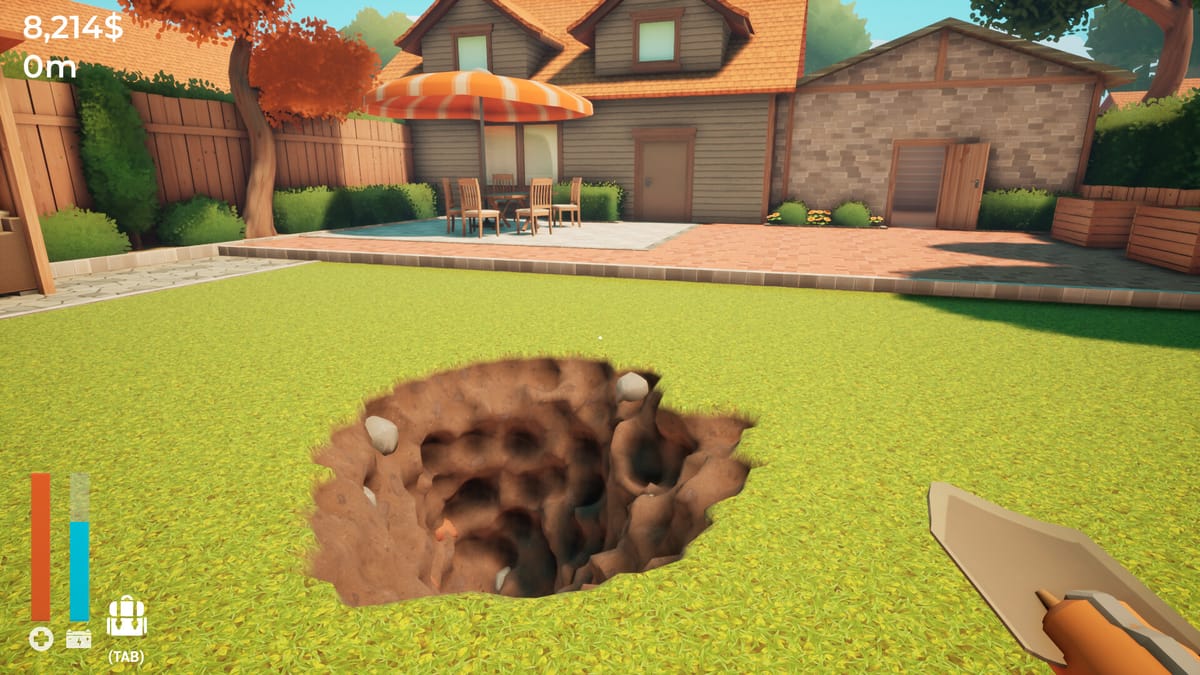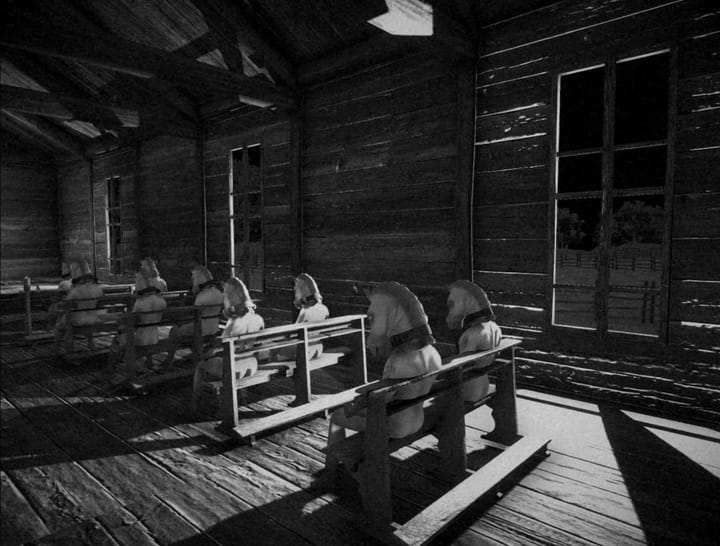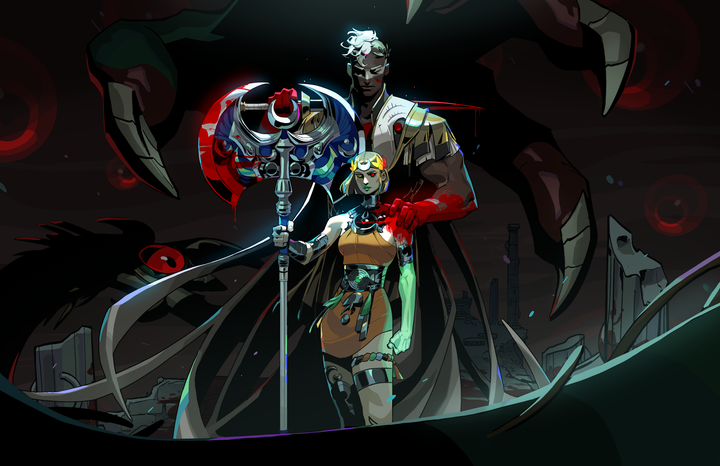A Game About Digging a Hole (PC): A Review About a Video Game
You can just dig. Forget the sandbox, this is a mudbox: a limited environment but one that offers impressive freedom in specific restraints. It is an exercise in pure game mechanics where you have one key verb and you execute it.

2008's You Have to Burn the Rope was a game where you had to do just that. It's a five minute experience in which you achieve one aim, an aim made clear by the game's title. There's nothing more – though you do get a song when you finish the game. That song, though, just reiterates that you've burnt the rope and beat the game. The whole thing is a tongue in cheek thesis on the ontology of video games, all games are really blown up versions of this single concept where you do something because you are told to do it and thus you've finished something. It's a less cynical cousin to Ian Bogost's Cow Clicker (2010) (one of the genesis points of the clicker genre), where you click on cows because it's a game where you click on cows. It is specifically a satire of mindless Facebook fare like Farmville but it cuts deeper as it's a hyperbolic exposé of what games are at their core.
A Game About Digging a Hole is a game about digging a hole. No more, no less. The opening cutscene informs you that you've bought a cheap house under the promise that there's treasure buried in the garden – there's even an X on the grass. After that, you dig a hole and it's an excuse for an upgrade loop. You click to dig (pro tip: play with a controller and you can hold down to dig rather than click every time) and in doing so uncover different ores that you collect. The problem is that you have limitations: you start with a very simple spade; you start with a very low carrying capacity; you start with a limited battery (that powers your spade). The ores you collect can be sold, though you have to come back to the house each time to sell those ores. The money from this ore funds new equipment and allows you to dig more effectively and thus gain more money. The very overt, though still good, central gag is that you are making money to spend money in order to get more money – to then get the promise of more money. It's all empty, the point is progress and progress alone. In doing this, it links back to You Have to Burn the Rope and Cow Clicker, you do the thing because the thing because you are asked to do the thing: raw gamification.
There's a relation to PowerWash Simulator (2022) here, a game where you PowerWash things and in doing so earn money to be able to PowerWash better to PowerWash more things. So many games are progression loops and there comes a point in games where this loop can start to feel exploitative and empty; on the other hand, it is a way of surfacing how some things are innately enjoyable. PowerWash Simulator is a kind of wish fulfilment, a joy of labour simulator that reminds you that the act of doing can be deeply satisfying. A Game About Digging a Hole also fronts one of the key appeals of video games: interactivity is fun. Being able to impact a space, to express yourself through systems, is fun. You can just dig. Forget the sandbox, this is a mudbox: a limited environment but one that offers impressive freedom in specific restraints. The upgrade loop is propulsive, well paced for a short runtime (the game is a couple of hours long) but the game is effective because digging the hole is engaging. It is an exercise in pure game mechanics where you have one key verb and you execute it. Carving out the space is engaging and the overtly clear aim frames the experience very nicely.
With that being said, there is a clunkiness to the game that does obtrude. Finding new material, taking it back and getting better so that you can dig deeper, works well but moving around in the space is imperfect. The growth in capability is good; take the starting spade for example. You get the appeal immediately as you plug away at the earth with freeing flexibility, but you also feel the limitation. It's clearly an imperfect tool, in a way that makes you eager to upgrade, but it does enough to sell the core mechanic. Digging through the space always satisfies, moving through the space doesn't. You get caught in spaces very easily, with small fragments of dirt blocking your path in ways that can be hard to parse. The freedom to just carve out wherever makes for good digging but awkward moving, and having a jet pack gets you around some of this but there are still too many moments where going through the space is frustrating. You are limited on purpose (you can't jump, for example, only jet pack up when you unlock that) and this shapes the rhythm of the game well, it's just that the game feel is a touch off. The very end of the game is also just a little bit annoying. There's a distinct very gamey moment, there as part of the game's extended commentary on what video games are, but it's not very well executed (and, ultimately, this kind of engaged commentary isn't the game's strongest suit). The actual ending is well done but the sequence that builds up to it is a pain that doesn't play well to the game's strengths.
A Game About Digging a Hole is a testament to the inherent satisfaction of video games. It is a distilled version of a traditional mechanic. In doing so, it comments on the emptiness of that mechanic – and the arguable emptiness of games as a whole – but it's also a dialectic. Yes, it is an exposé and an implicit critique but this critique is packaged up in a game, this isn't an essay. By presenting the unvarnished heart of the video game to you, it also reminds you that video games have heart. You are just digging a hole, digging a hole because a game told you to dig a hole. It's a task that is definitionally dull but gamifying it shows the alchemical power of video games in which the concept of play elevates it all. There's a wish fulfilment element in which, yeah, it would be cool to just dig up your entire garden. This is a thrill of video games, a consequence free zone that is often just the domain of violence (and, by extension, groan inducing tabloid headlines). There's an emptiness to gamification but there's also just an inherent joy in it. In the end, this is less a critique of the nature of games and more a sweet reminder of the pure joy of interactivity and progress. It feels good to get better, it feels good to achieve a goal and it all being a bit pointless is part of the fun. It feels good to just dig a damn big hole.





Comments ()